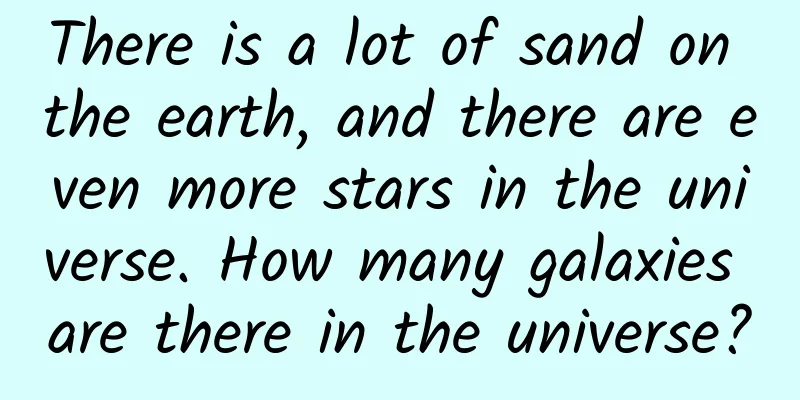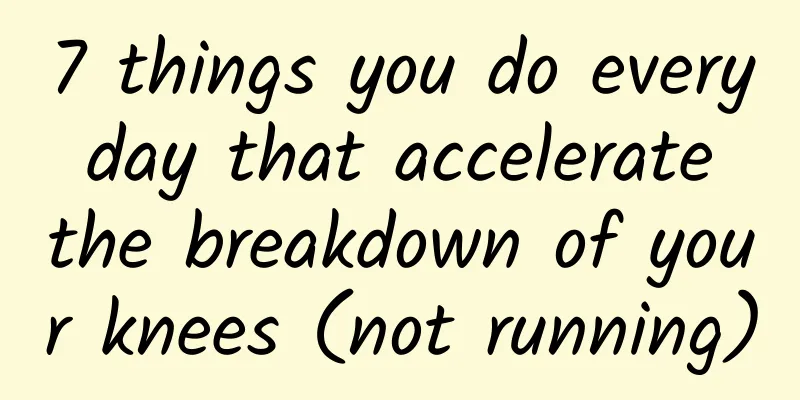Why do the holidays go by so fast?

|
Author: The Nutcracker Studio Many people have this feeling: the weekend has two days, a total of 48 hours, but it always feels like Monday is just a blink of an eye! The seven-day National Day holiday, the seven-day Spring Festival holiday, and the winter and summer vacations for students always seem to be gone in the blink of an eye, while the days of going to school and working always seem to be endless. Why does time go so fast and slow? 1. Doing nothing makes time go slower To answer this question, let's start with a story. One day in 1933, the wife of physiologist Hudson Hoagland was lying in bed with a high fever because of influenza. Mrs. Hoagland, who was in unbearable pain, suddenly complained to her husband: "Why did you leave me here for so long?" Hoagland felt confused, and he thought to himself: "I was only away for a short while!" So regardless of whether his wife was sick or not, Hoagland began to do experiments. He found that the higher his wife's body temperature, the slower she felt time was passing. Later, Hoagland repeated the experiment on his students. He asked the students to wear heated hats that could be heated to a maximum of 65 degrees Celsius. After a series of experiments, Hoagland found that as the temperature increased, people's perception of events could slow down by up to 20%. So Hoagland speculated that people's perception of time is related to the chemicals secreted in the body. Unfortunately, this theory is wrong. After continuous research by scientists, we now believe that people cannot actually perceive time directly. Our perception of whether time passes quickly or slowly is judged by the events that happen. The holidays pass by in a flash, but the few minutes before getting off work or school feel like a year. This is because when we feel bored, our minds tend to focus on time. Think about it, when you are about to get off work or school, do you check the time every once in a while? When you are fully focused on doing something, such as playing games, dating, or watching TV series, you don't care about the time at all. However, this does not simply mean that the happier you are, the faster time will pass. Studies have found that only when people have clear goals and focus on achieving them will they feel that time is passing faster. So, if you want to get to the weekend quickly, it is actually very simple, just start working and studying hard. Another interesting finding is that when we recall an experience, our estimate of how long it lasted is often the opposite of how it felt when we experienced it. For example, we feel that time flies when we are on vacation, but when we wait for the school to start, time feels very slow. But when we recall these two experiences a few months later, we will feel that the vacation is long and the school time is short. This is because when we construct memories, we need to recall various events and judge the length of time based on these events. During the vacation, we will have various interesting activities, which are all memory points. These good memories make the vacation time longer in our memory; on the contrary, when we are in school, every week seems to be repetitive, with few memory points, so we feel that the school time is short. 2. Does time go by especially fast for the elderly? In addition to the fact that holidays make time feel like it's passing quickly that we mentioned above, there is another common saying: children will feel that time is endless, but as they grow older, they will feel that time is going faster and faster. In 1897, French philosopher Paul Jennet proposed a theory about how people perceive time, called the "proportional theory". According to this theory, a person's perception of time is relative, and a person will use the total time he has spent as a reference object, that is, a person will compare a certain period of time with the total time he has experienced in his life. For example, for a 10-year-old child, one year is equivalent to 1/10 of his life; for a 50-year-old middle-aged person, one year is only 1/50 of his life, so the middle-aged person will feel that time passes faster. The problem with this theory is that it presupposes that we think of our lives as a continuous whole, where each day, week, and month has the same meaning for us. But life doesn’t work like that — it’s more like a series of fragmented moments, each of which we assign different meanings to. Robert Ornstein, an American psychologist, also proposed an explanation in the 1960s. In an experiment, Ornstein played a recording to the participants and asked them to estimate the duration of the recording. The results showed that the more complex the recording content and the more information it contained, the longer the participants estimated it to be. Therefore, Ornstein believes that for children, the whole world is new. They are exposed to a large amount of complex information anytime and anywhere, and the brain needs a lot of energy to process this information, so time passes more slowly; while for adults, the world has become familiar, and when the brain comes into contact with this information, it does not need a lot of energy to deal with it, so time feels like it passes faster. The above explanations are all psychological, but this phenomenon can also be explained from a physiological perspective. A simple and crude explanation is that children have a faster metabolism, their heartbeats and breathing are faster, their biological clocks run faster than adults, and they have to complete more things than adults in 24 hours. As we age, our metabolism slows down - just like a slowed-down clock. 3. Important things make time go faster In addition to age affecting our perception of time, important events also affect our perception of time. This phenomenon is called "forward telescoping" by psychologists: people tend to think of important events as if they just happened. When we think back to important events in the past (such as weddings, funerals, births, etc.), we often sigh, "It's been so long since this happened!" So we feel that time has passed faster. This article is produced by Science Popularization China-Starry Sky Project (Creation and Cultivation). Please indicate the source when reprinting. |
<<: How to reduce the harm of drinking during the Spring Festival? Please keep this guide!
Recommend
Write a good product promotion plan, only these 6 tips
I have no idea how to promote a new product every...
Civic's big brother is out! Dongfeng Honda announces the suspension of sales of the 1.5T version of CR-V
Some people say that some so-called car owner gro...
The "murderer" that once caused mass extinction of biological species, will its "shadow" reappear on Earth in the future?
Tuchong Creative Everyone may have a personal exp...
Practical traffic diversion skills for Douyin (Part 1)
In order to help you learn the course better, tod...
How to build your user system?
The past and present of the user system This titl...
How powerful is China’s 35 times the speed of sound wind tunnel?
China's 35 times supersonic wind tunnel has a...
Children’s Day is coming, how should brands carry out marketing promotion?
"Moeology" is probably one of the compu...
Is there still a chance as big players are crossing over to make mobile phones?
In today's mobile phone industry, Xiaomi can ...
Sitting for a long time and having back pain? One move can help you!
As an adult, who hasn’t experienced lower back pa...
Resource station profiteering, long-term and stable money-making project
We all know that traffic is the essence of all bu...
Let’s talk about the operation and promotion of mobile games!
What to do when you are bored? Let’s play a game ...
2022 Mother's Day Marketing Guide
According to the annual consumer survey report re...









